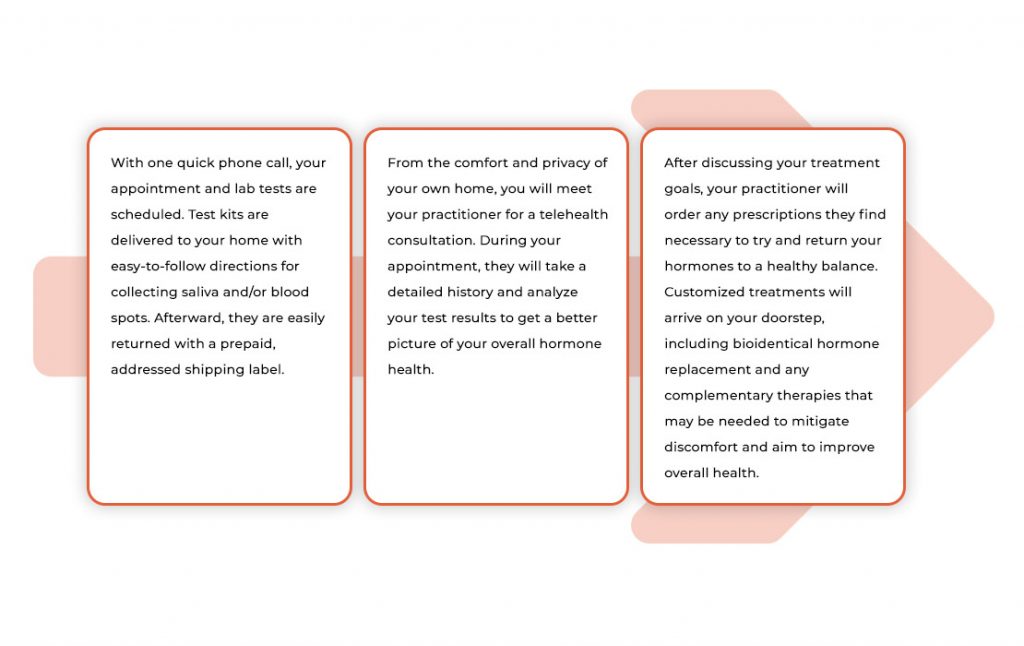Hormones carry vital information to every cell in your body. Produced by the glands and organs of the endocrine system, these 50 or so distinct chemicals control a variety of functions, including metabolism and energy production. Rising cortisol levels, for example, help you awaken in the morning, while melatonin increases at night to help you sleep.
With hormones tied so intricately to energy and metabolism, it should come as no surprise that hormone imbalance and hormonal changes can wreak havoc on our energy levels. While many people will experience hormone irregularities due to medical conditions, all of us deal with the waning levels of hormones as we age. As such, it is important to understand how this may impact your sense of vitality over time.
How Hormones Affect Energy Levels
Hormones are heavily involved in maintaining your metabolism, which in turn affects your energy levels. With so many hormones involved in complex interactions, however, it can be difficult to isolate exactly which hormones are responsible for these changes. As one hormone specialist notes, diagnosing hormonal imbalances requires practitioners to act as “medical detectives.”
A few of the hormones that must be considered include:
- Thyroid hormones: The hormones of the thyroid gland are responsible for maintaining homeostasis (or balance) in the body, affecting temperature, metabolism, heart rate, mood, and energy levels. When you experience hypothyroidism—abnormally low levels of thyroid hormones—many body systems slow down, typically leading to fatigue and low energy. Less energy consumed can lead to weight gain, slower digestion leads to constipation, and
thedecreasing serotonin levels may result in depression. - Adrenal hormones: Cortisol, a hormone produced in the adrenal glands, responds to the body’s energy needs by regulating metabolism and hunger. Chronic stress can disrupt this system and damage your body’s ability to function optimally.
- Testosterone: Although testosterone is the primary male sex hormone, its functions are essential in both men and women. Decreased testosterone levels may result in low sex drive, loss of muscle mass, and mood disturbances. But low testosterone can also cause low energy levels, which may have a serious impact on your everyday life.
- Estrogen and progesterone: When estrogen and progesterone levels fluctuate or drop sharply, many women experience uncomfortable symptoms, including hot flashes, mood swings, vaginal dryness, and bone thinning/increased fracture risk. Significantly, both low and high estrogen levels may also affect your energy levels.
For women, hormone levels can shift dramatically during perimenopause and menopause, whereas men typically experience a slow and gradual decline beginning around age 30. As such, both men and women can develop troubling symptoms and often see their energy levels decline as we approach middle age.
Unfortunately, imbalances in a variety of hormones often have similar symptoms. Additionally, an imbalance of one hormone can potentially cascade into more complex conditions since many hormones directly impact the levels of others. Diagnosing hormone imbalance may involve ruling out other causes before specific treatments can be prescribed.
New Possibilities for Restoring Energy
Even if low energy levels and other hormone-related symptoms are interfering with your daily life, you may be putting off addressing them. A 2015 study found that though approximately 80% of women experience uncomfortable menopausal symptoms, only 10% of women surveyed were receiving hormone replacement therapy. The same is often true for men and women experiencing other hormone-related symptoms.
Today, accessing quality care is easier than ever before. Forward-thinking programs are combining telehealth technologies and at-home hormone tests with bioidentical hormone replacement therapy and lifestyle supports to offer comprehensive care for men and women struggling with low energy levels. Some of the best telehealth HRT programs involve:

The ease of these innovative solutions allows you to be proactive about your hormone health without leaving the safety and privacy of your own home. Convenient telehealth follow-up appointments allow your practitioner to monitor progress toward your goals and fine-tune your treatment plan.
Relief May Be at Your Fingertips
If low or unpredictable energy levels are holding you back, now is the time to find a real solution. The cause may be complex, but with remote access to hormone health specialists and detailed diagnostic testing available right at home, it is possible to quickly determine if hormones are responsible for your waning energy. Through customized treatments delivered directly to your home and ongoing support from your practitioner, you can work toward getting back on track as soon as possible.
If you want more guidance on restoring your vitality, BodyLogicMD can help. The practitioners in the BodyLogicMD network are experts in hormone health and trained to help you discover the cause of your low energy levels. With telehealth, a BodyLogicMD-affiliated practitioner can assess your needs and create a personalized plan to help you achieve your health goals—from virtually anywhere. Set up your telehealth consultation, or take the BodyLogicMD Hormone Balance Quiz to learn more about the role hormones may be playing in your everyday life.
Disclaimer: These statements have not been evaluated by the Food and Drug Administration. All content on this website is for informational purposes only. The content is not intended to diagnose, treat, cure or prevent diseases.
